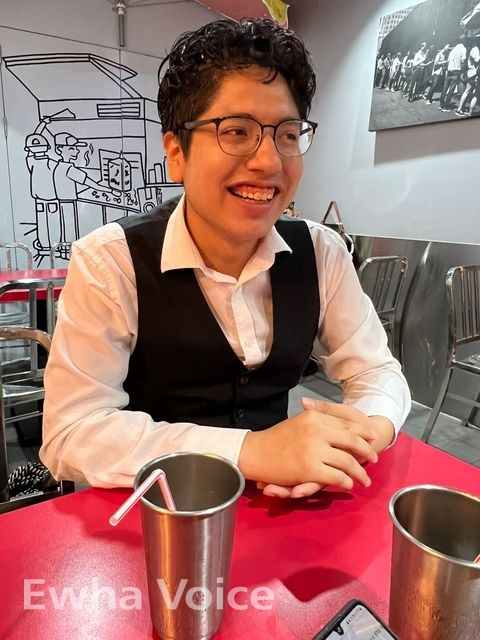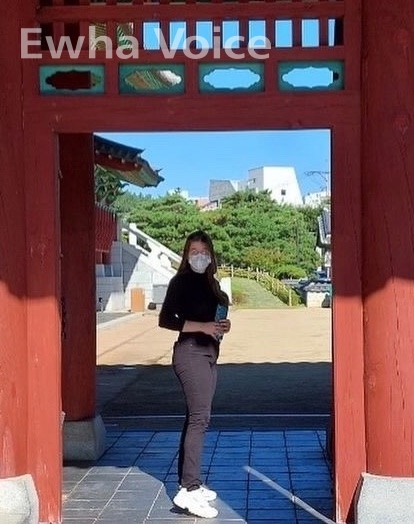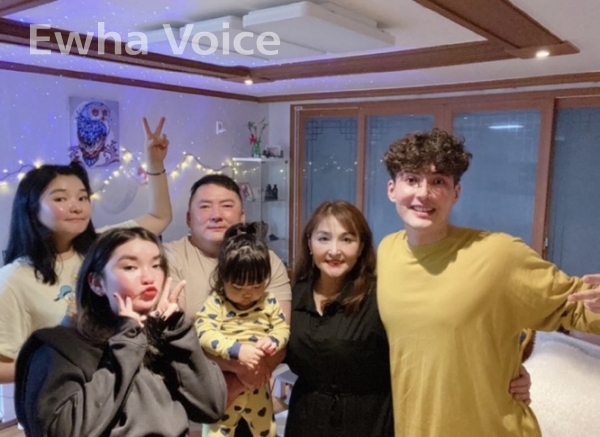How do international students spend Chuseok in Korea?
Chuseok, also known as Hangawi, is one of the biggest national holidays in South Korea. Chuseok is celebrated on the 15th day of the eighth month of the lunar calendar, to appreciate the good harvest. Visiting families and relatives in hometowns, performing Charye, which is a rite paying tribute to the ancestors, and eating the traditional Korean rice cake Songpyeon, are the major customs that Koreans practice on Chuseok. How are international students studying in Korea spending their Chuseok?
A Peruvian’s observation of Chuseok
Eduardo Jesus Ayerve Cruz, a sophomore from the Department of Computer Science and Engineering at Seoul National University, is from Peru. He first came to Korea in February 2020, in the beginning of the pandemic.
As he is studying abroad and with no families or relatives to visit, Ayerve spent every Chuseok in Korea with his other international friends. Along with his fellow Latin friends, Ayerve had fun going to parties and amusement parks during the Chuseok season.
What Ayerve found interesting was the resemblance between the way Koreans celebrate Chuseok and how Peruvians celebrate the harvesting season.
During the harvesting season, the Peruvian communities in the city of Cusco help each other within their towns to harvest. As the climate conditions vary every year, the harvesting season changes each year as well, taking about three to four days.
After harvesting, Peruvians also prepare a special dish called Chiri Uchu as their rite, meaning cold dish in Spanish. As Peruvians put lots of dishes on the table from their harvests along with cheese, beans, and meat, it takes a lot of time to get everything ready. Thus, the name Chiri Uchu was given as the food gets cold by the time they finish preparing.
Since everyone in town helps each other harvest, Ayerve said the best part of the harvesting season in Cusco is getting to know the town residents.
Ayerve also stressed that since Peru is a multicultural country, people from various regions celebrate different kinds of holidays.

Exploring new places during Chuseok season
Naama Benamy Schoneveld, a junior from the Department of Linguistics at Korea University, is from Israel.
Last year, Benamy spent Chuseok traveling Ulsan with her international friend. With an anticipation to explore the new city, Benamy and her friend visited a few cultural sites such as the whale museum and took a whale watching cruise.
Benamy felt happy to be able to travel somewhere else during a holiday, since she usually does not have that much free time. However, at the same time, she was surprised by how many shops were closed, as it made it difficult to schedule everything around the holiday season when shops close earlier than usual.
Chuseok can be lonely for foreigners living in Korea, as Koreans mostly spend this time of the year with their families and relatives. Benamy felt that if there were more programs and tips for foreigners arranged by tourism organizations in Korea, they would spend Korean holidays in a more memorable way.
For this year’s Chuseok, Benamy has set a plan to go on a trip to Gyeongju. Because she had a hard time reserving KTX tickets this season last year, for this year, she planned a full schedule in advance this year.

Foreign students share stories about their traditional holidays
With Chuseok just around the corner, people are racing to buy tickets home, and supermarkets are piled high with gift sets of fruit or various processed meats. The holidays look a little different for everyone as each household has their own traditions and dynamics. This is especially true when looking around the world. Ewha Voice asked a few people of various cultural backgrounds to reminisce about their memories of the holidays.
As a disclaimer, these are the stories of these specific individuals and do not represent their home country’s cultures as a whole.
Starting New Years with a splash
Natthanitwara Ittichawin shared about how she celebrated Songkran, a holiday in Thailand that is usually celebrated from April 13 to 15. Traditionally, Songkran refers to New Years celebrated by many parts of South Asia. It is often known for its water festival, where people spray water to passerbys.
According to Ittichawin, usually people would celebrate by spraying water and powder on the first day, while the second and third day people would go to their hometown to spend time with family. She shared fun memories of when she would go with her friends to the mall to spray water and powder while her parents stayed home from the chaos. On the second day of Songkran, Ittichawin would go to her grandparents and pour water on the hands of her elders, as a sign of respect and wishing them a long and good life.
However with COVID-19, festivities aren’t the same as before, leaving Ittichawin feeling disconnected from the holiday. Especially being in Korea, she says it may take some time until the holidays have a significance again.
Until then, she hopes to connect with her home country by continuing to make Thai cuisine and sharing the culture with friends.
Home is where the hut is
Benamy shared her experience with the Jewish holiday, Sukkot, also a harvest festival similar to Chuseok, in remembrance of the 40 years of wandering in the desert after the Exodus from Egypt.
Commonly, people build sukkots, temporary hut-like structures, outside their homes and the day is celebrated with food, prayer, and community.
But this holiday can also look different for each community. According to Benamy, her village was very small, so instead of the common individual huts outside of each home, the community would come together to build a large main hut where the festivities would be held.
Benamy shared memories of meeting extended family and friends whom she doesn’t have a chance to meet often. Particularly, Benamy believes her fond memories of decorating the community hut with paper rings and banners has influenced her investment in art to this day.
Coming to Korea, Benamy was a quite sad that she could not celebrate the holiday as she used to. Nonetheless, she said that the distance has made her appreciate her family more and grow spiritually. Benamy carries on the holiday and Jewish traditions in her own way by praying, reading, and speaking more Hebrew. Nowadays, she spends the holiday wishing friends and family happy holidays and appreciating her childhood and growth.
“I am more spiritual than I am religious, so I would probably keep traditions that rely more on that aspect of Judaism,” Benamy said. “When I celebrate alone, I only participate in traditions that feel personal to me and that spark joy, and I will likely keep doing that.”
Celebrating Mongolian holiday in South Korea
Gantumur Namuun, a sophomore at Ewha Womans University majoring in International Studies is a Mongolian living in Korea with her family.
One of the traditional holidays in Mongolia is called Naadam, and Mongolians celebrate it from July 11 to 13. Naadam consists of three games: archery, horse racing, and Mongolian wrestling.
During this time of the year, many of the Mongolians visit the countryside to see their families. They also eat Khuushuur, a meat pastry resembling dumpling, and wear the traditional clothing called ‘Deel’ for Naadam.
However, since Gantumur and her family are currently in South Korea, they spent it in their own way along with fellow Mongolians residing in South Korea. At her family-owned restaurant called “Namuun,” they watched the live festival on TV, made Khuushuur together, and listened to some Mongolian traditional music.
Celebrating holiday far apart from their home country, Gantumur said the customers at the restaurant were feeling very sentimental. Adding that she also has lots of precious memories about Naadam, she said that this year’s celebration reminded her of her childhood.
Whatever the holidays may look like, wherever you are in the world, hopefully the holidays can be a time to appreciate your loved ones, eat good food, and slow down.


